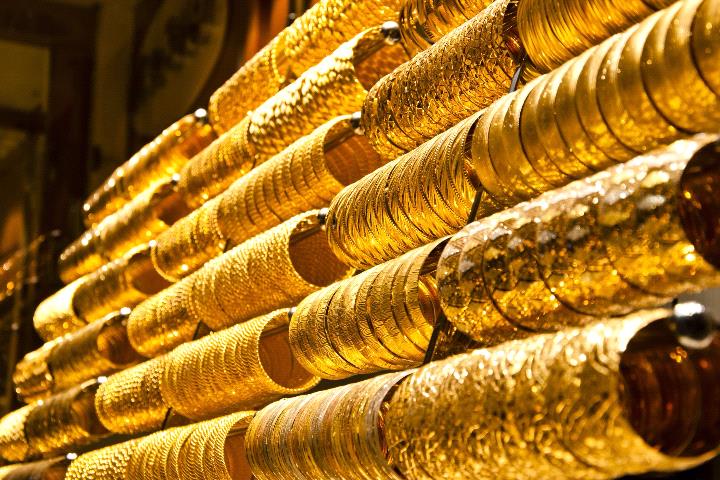
Middle East gold jewellery demand plunged 24 per cent in the third quarter, battered by the twin effects of high gold prices and low crude, with usage in the United Arab Emirates and Egypt at record lows, the World Gold Council said. Mideast demand fell to 42.1 metric tons, with Egypt’s usage down 50 per cent from a year earlier to 6 tons and the UAE off 23 per cent to 7.8 tons, the World Gold Council said in its quarterly demand trends report published Tuesday. Saudi Arabia declined 23 per cent to 12.7 tons, while Iran rose 6 per cent to 11 tons. “Persistently low oil revenues in the UAE and Saudi Arabia have strained finances and impacted jewellery consumers,” the producer-funded World Gold Council said. Iran “continues to benefit from more favourable economic conditions than other markets in the region”. In Turkey, slowing economic growth and record high local gold prices contributed to 22 per cent drop in third-quarter demand, the World Gold Council said. “The prospects for the fourth quarter remain weak as political instability and continued lira weakness frame the consumer picture.” (Claudia Carpenter/Bloomberg)

 Nasdaq set to confirm bear market as Trump tariffs trigger recession fears
Nasdaq set to confirm bear market as Trump tariffs trigger recession fears
 Dana Gas and Crescent Petroleum exceed 500M boe in Khor Mor field
Dana Gas and Crescent Petroleum exceed 500M boe in Khor Mor field
 China to impose tariffs of 34% on all US goods
China to impose tariffs of 34% on all US goods
 Shares bruised, dollar crumbles as Trump tariffs stir recession fears
Shares bruised, dollar crumbles as Trump tariffs stir recession fears
 Wall Street futures sink as tariffs fuel recession fears
Wall Street futures sink as tariffs fuel recession fears




